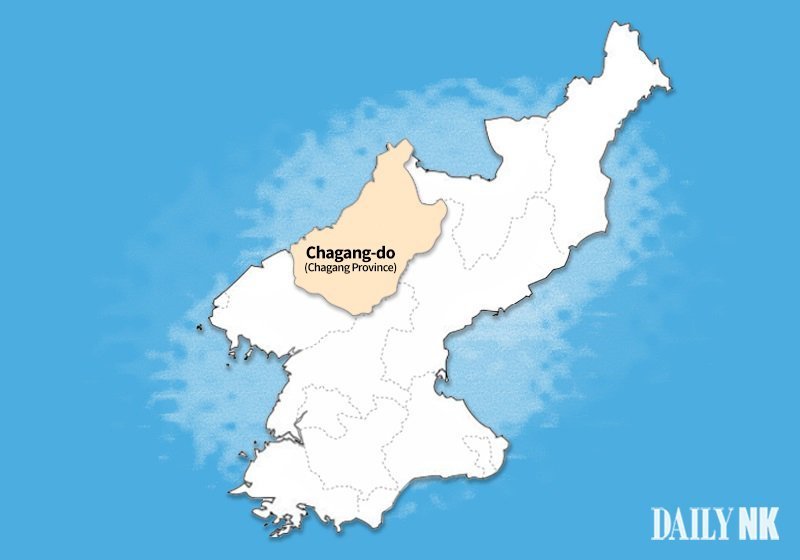North Korean authorities reportedly replaced the entire administrative staff of Correctional Labor Camp No. 6 in Songgan County, Chagang Province, late last year, including the head of the camp. According to a source, the move aimed to sooth public sentiment angered by continued human rights abuses at the camp.
A source in Chagang Province told Daily NK on Thursday that authorities replaced the administrators of the camp “from late November to December.” He said while it is unclear exactly how many people were replaced, it was “reportedly around 600.”
According to the source, new administrators were sent to the Songgan camp after receiving training from the Ministry of Social Security’s corrections bureau in Pyongyang. North Korean authorities reportedly selected recommended individuals with strong party loyalty who had been organizationally vetted, but who had “relatively mild temperaments.”
In particular, the source said North Korean authorities selected as the camp’s new head someone who had been head of the “correctional life department” of the corrections bureau in the Ministry of Social Security. Above all, the new director is a one-star general, making him – militarily speaking – the highest ranking head of a correctional labor camp in North Korea.
The source said the shakeup was ordered “because beatings, violence and other abuses had continuously taken place” at the camp, which is Chagang Province’s sole correctional labor camp and houses only inmates from the province. He added that local residents “grew agitated” at problems at the camp, and so “all the camp’s administrators were replaced.”
For example, in July, a camp guard brought a female prisoner to a separate work site and raped her. When she resisted, he killed her and buried her body on a nearby mountain.
The guard was publicly executed by firing squad, but as word of the incident spread widely, the mood in the province turned ugly. That is to say, the authorities detected signs of local disaffection after the horrible incident.

The source said the Ministry of Social Security’s corrections bureau investigated the administrators of Songgan Correctional Labor Camp for high-handedness, abuse and corruption, finding a record of problems. In the end, they decided to replace the entire administration of the camp.
However, over half the families of the new administrators are reportedly avoiding the move to Chagang Province.
“Chagang Province has a bad climate, being frigidly cold in winter and swelteringly hot in summer. It has a reputation of being deep in the mountains, and since even smuggling is tough, there’s no way to make a living there, so they’re not coming,” said the source. “There have even been cases of wives with a lot of money paying off the cadre department to discharge their husbands before they get dispatched to Songgan Correctional Labor Camp.”
The camp’s original administrators have reportedly been scattered to other regions as security personnel. However, they have had to leave their families behind in Chagang Province due to the sudden transfers, leading to complaints among the former administrators, the source said.
Meanwhile, authorities created a new department at Songgan Correctional Labor Camp last September to handle provincial residents sentenced to milder forms of disciplinary labor.
“Since most residents of Chagang Province work in munitions factories, there are many cases of them getting caught siphoning off munition supplies,” said the source. “You have to punish them when they do that, but it seems [authorities] intend to go easier on them by giving them forced labor sentences since they know the production processes at the munition factories and where the underground tunnels are.”
In North Korea, if you are sentenced to correctional labor, you are stripped of your civic rights and party membership, a symbol of your political life. If you are sentenced to forced labor, however, you keep your civic rights and continue to live as a party member.
The source said the measure aims to promote unity “by showing to residents of Chagang Province that they can take hope and live in the bosom of the Party, ever forgiven through the magnanimity of the Party.”
















